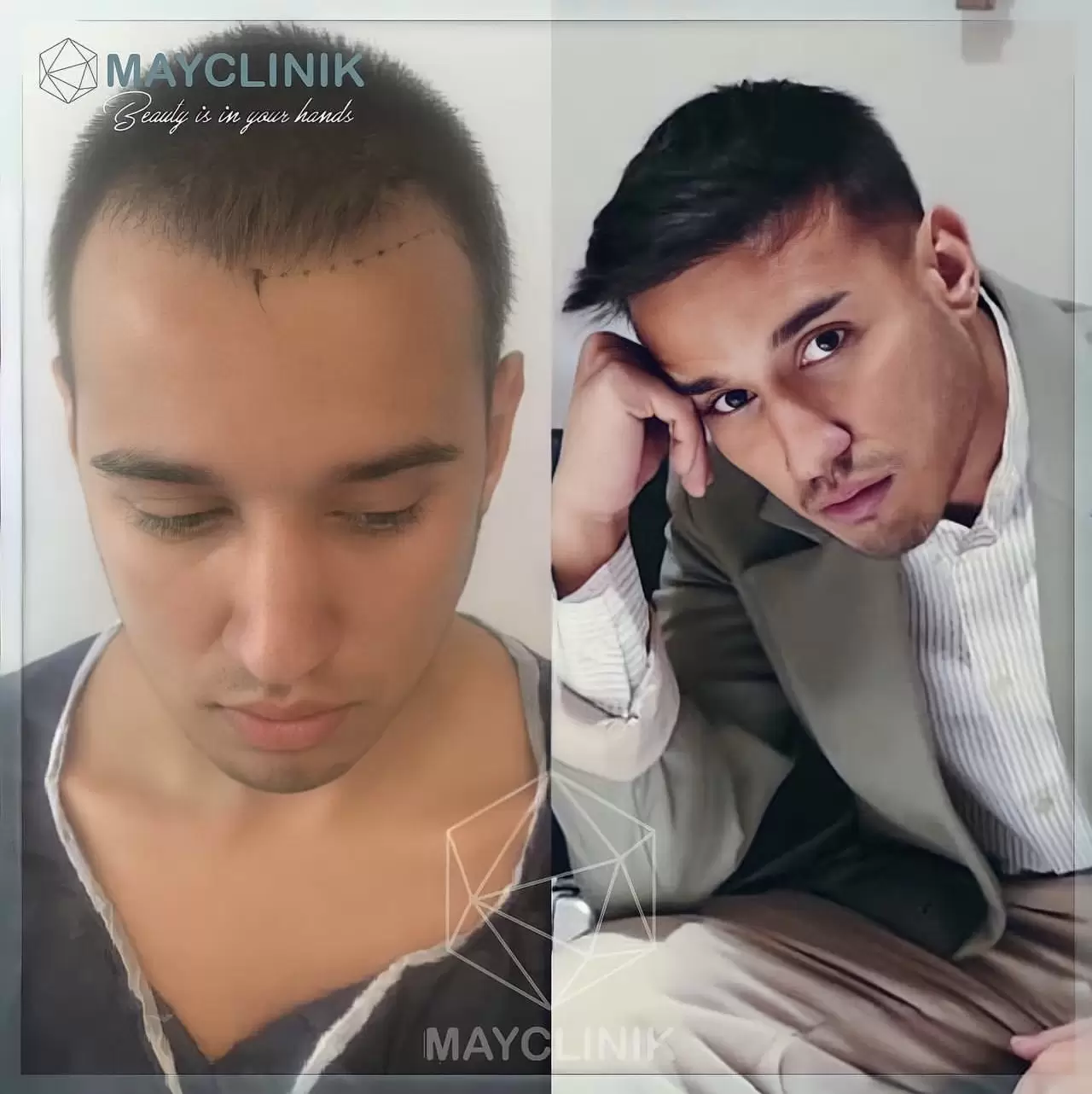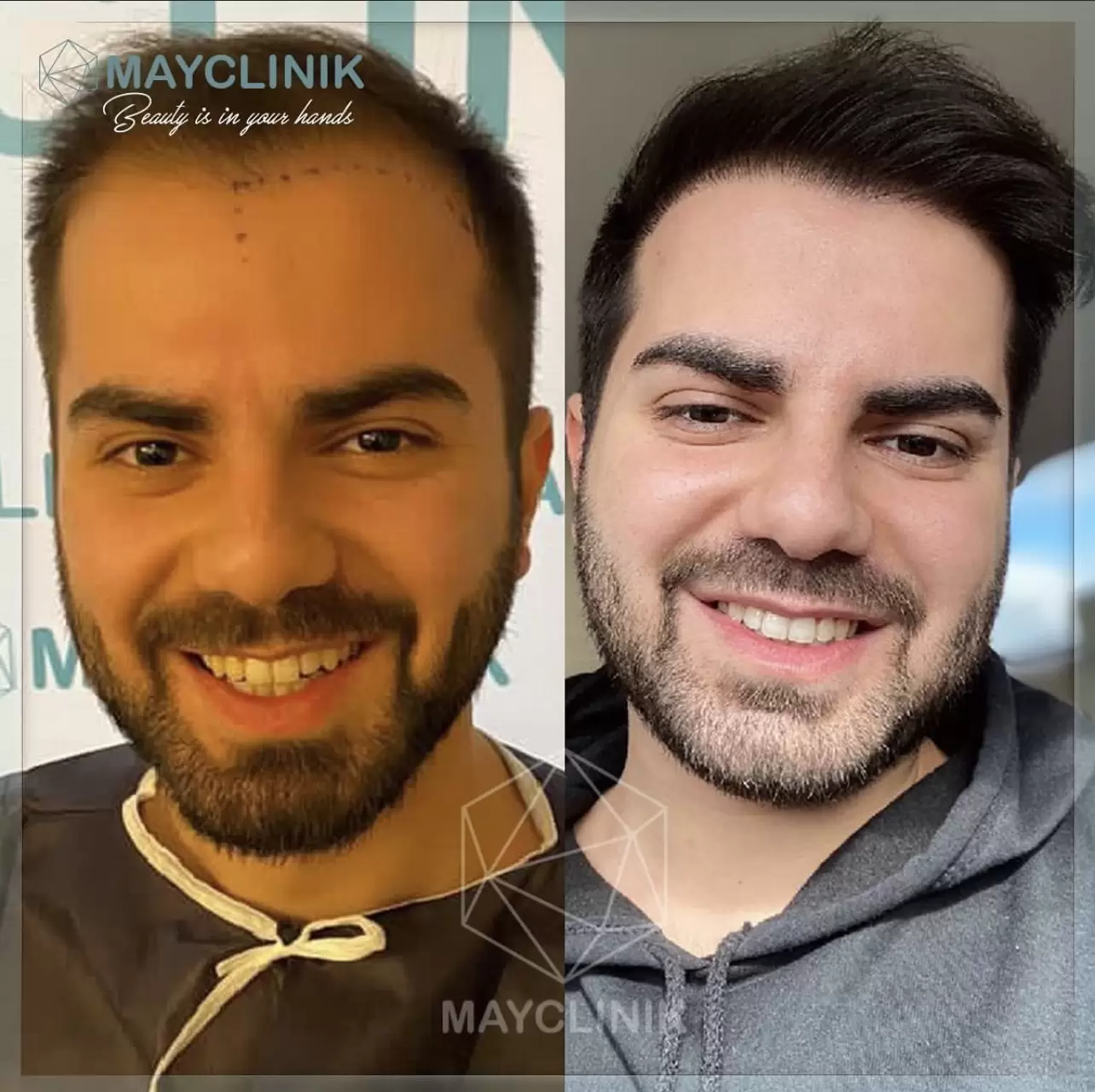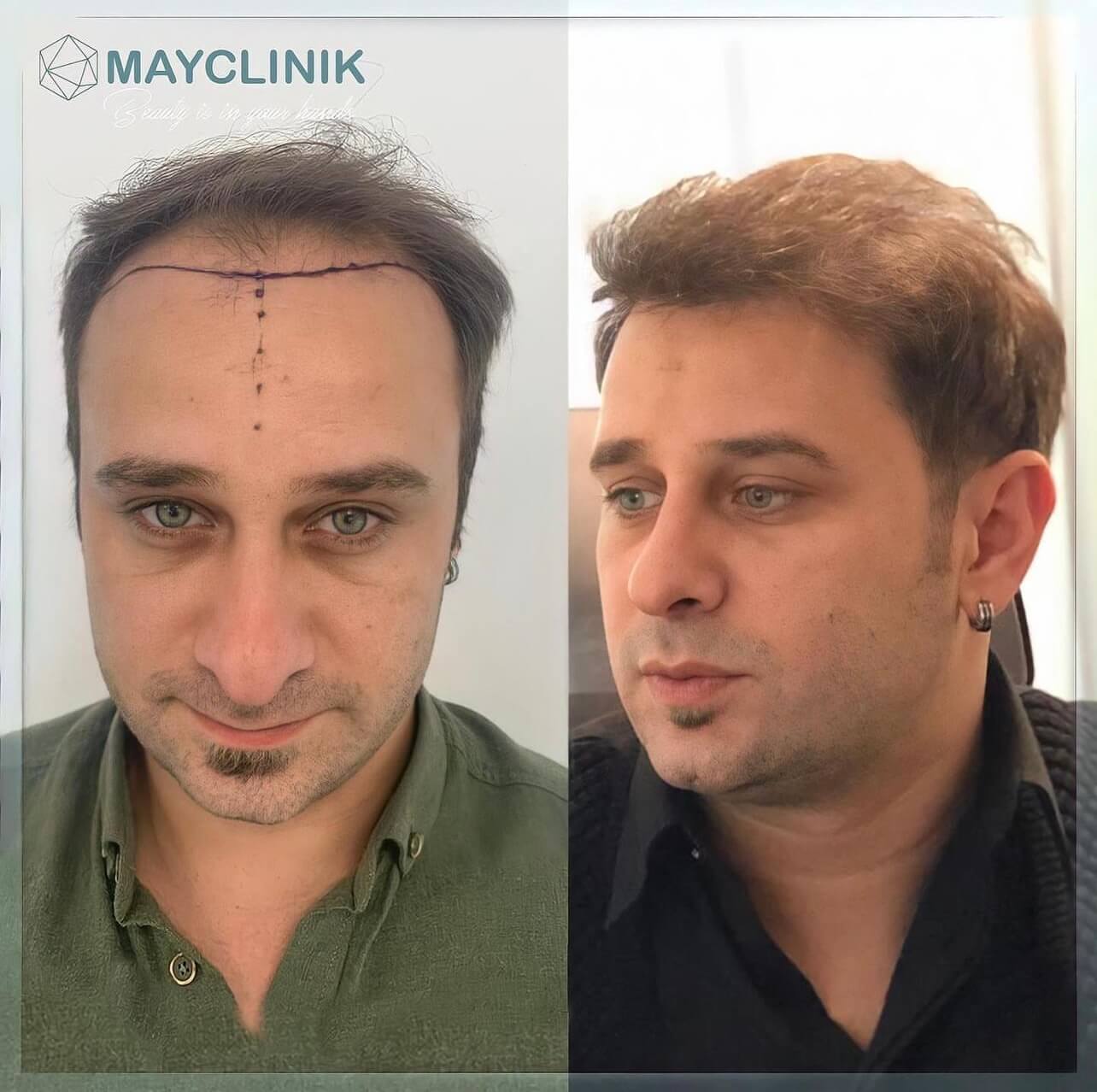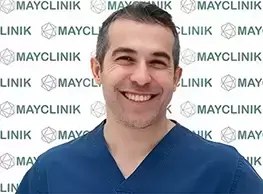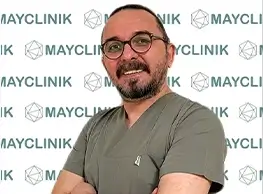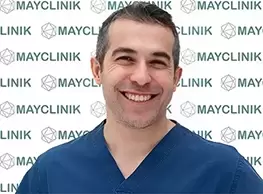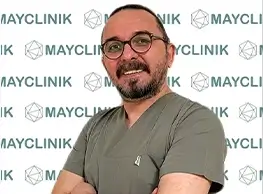3 Days
ACCOMMODATION
2-5 Hours
OPERATION DURATION
5-7 Days
RECOVERY DURATION
3 days
FOLLOW UP VISIT
Video Reviews
Click on the image to enlarge
3 Days
ACCOMMODATION
2-5 Hours
OPERATION DURATION
5-7 Days
RECOVERY DURATION
3 days
FOLLOW UP VISIT
Best Hair Transplant Surgery in Turkey
In the arena of aesthetic treatments, hair transplant in Turkey stands out as a cutting-edge, transformative procedure with a global reputation for excellence. Let’s delve into the critical aspects of this process.
What Is Hair Transplantation?
Hair transplantation marks a revolutionary step in combating hair loss. In this surgical procedure, doctors transfer hair follicles from a ‘donor site’—an area of the body with plentiful hair growth—to the hair loss-affected area on the scalp.
How Does Hair Transplant Work?
Hair transplant Turkey primarily employs two methods: Follicular Unit Extraction (FUE) and Direct Hair Implantation (DHI). FUE involves the extraction and transplantation of individual hair follicles, while DHI uses a patented tool for both procedures, promoting an efficient and effective transplant.
What is a Hair Transplant Graft Calculator?
While researching hair transplant surgery, there are a number of tools out there that can assist with narrowing down a search for a doctor you like and are comfortable with as well as finding a location close by and a price range you would feel comfortable with.
The hair graft calculators typically ask users to choose the area of the scalp they are looking to have issues resolved on and exactly how much hair they will need transplanted to that area to give ballpark on how many grafts are needed to do the job.
The final amount, of course, will vary not only by doctors and their fees, but also from person to person depending on even the size of their head. Even if these might not be the final number you need to make your hair transplant decision, the calculators are a good tipping off point in beginning to understand what will be involved for the next steps in your hair restoration journey.
Graft Calculator
|
|
* Graft density of 35 grafts per square cm is recommended. Here's what you have selected:
35
|
Value of zero is equivalent to complete baldness of area. Increase of value indicates shift towards appearance of hairs to full restoration at maximum value.
Baldness: 0 | Recommended Value: 35 | Full Restore: 50

Hair Transplant Recovery Timeline in Turkey
Recovery time from a hair transplant varies. Generally, it takes a few weeks, with crusts on the scalp disappearing within the first week, followed by the shedding of transplanted hair, paving the way for new growth. A few months post-surgery, patients begin to notice considerable hair density improvement.

Who Is a Good Candidate for Hair Transplantation in Turkey?
An ideal hair transplant candidate has suffered from pattern baldness for several years and has sufficient donor hair. However, having realistic expectations is essential, understanding that while a hair transplant can improve the appearance, it can't create a full head of hair.
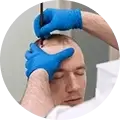
How Old Do You Have to Be for Hair Transplant?
There's no specific age limit for hair transplantation. However, doctors usually recommend patients be at least 25 years old, as pattern baldness typically presents a more precise picture by this age, aiding in a more effective transplant strategy.
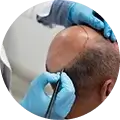
Is Hair Transplant Permanent?
Yes, hair transplant usually yield permanent results. Transplanted hair follicles are resistant to balding, making the procedure effective for a lifetime.
FUE Method Hair Transplant
A variant of the hair transplant, the FUE method is a popular choice for those who want to keep their hair length during the procedure. This procedure is a type of shaved hair transplant that is performed with the help of micromedical knives. It requires meticulous skill and is ideal for patients looking for minimal disruption in their daily lives.

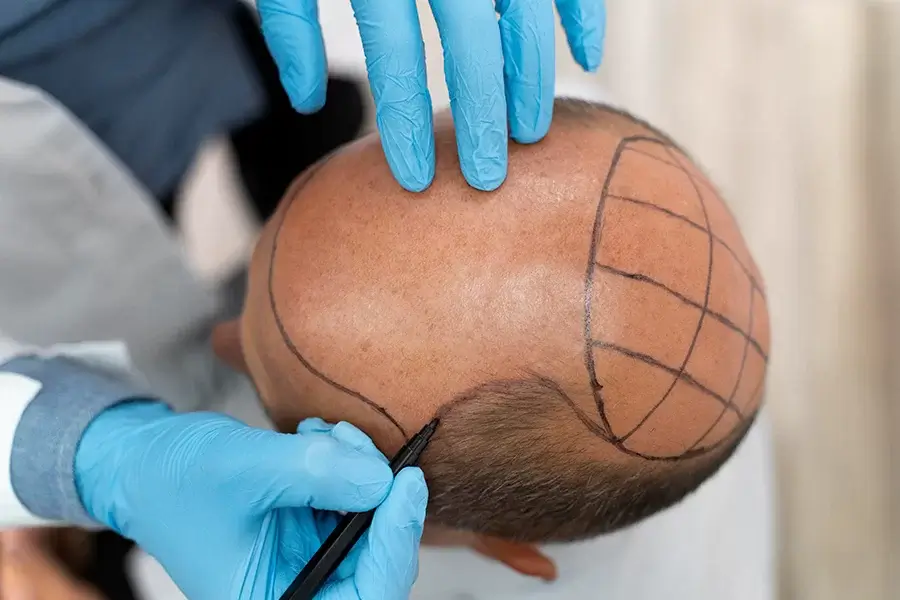
(Unshaven Hair Transplant) DHI Method Hair Transplant
The DHI method improves the effectiveness of hair transplantation by reducing the time the hair follicle is outside the body. It utilizes a patented tool for both extraction and implantation, ensuring high success rates.
Sapphire Hair Transplant
Sapphire hair transplant is a technique where a sapphire blade is used instead of a steel one for creating incisions in the recipient area. This method ensures precise implantation, resulting in denser, more natural-looking hair.


Which Methods Are Used for Hair Transplantation in Turkey?
Is Hair Transplant Safe?
Yes, a hair transplant is a safe procedure performed by a trained and experienced professional. However, as with any surgery, it’s vital to be aware of the potential risks and complications.
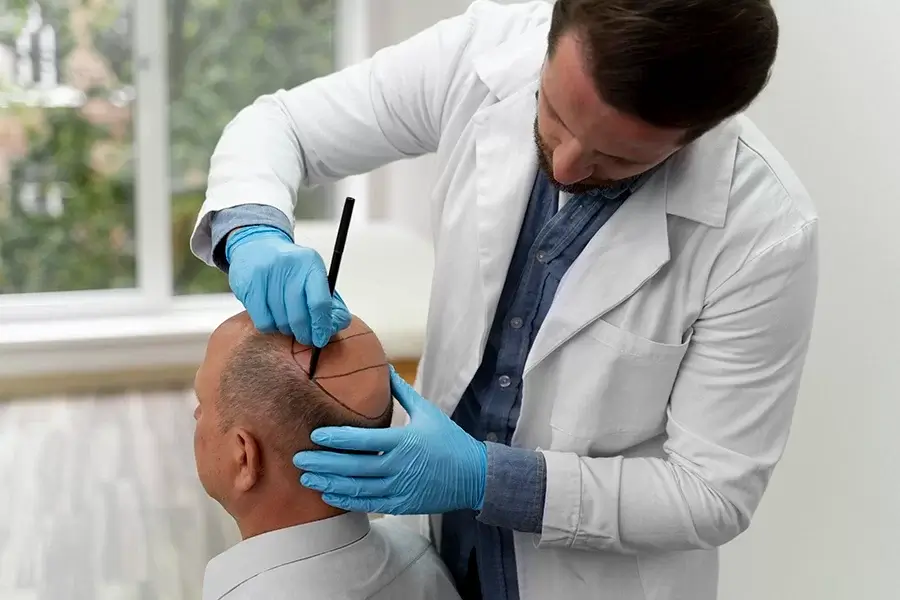

Do You Feel Pain During the Hair Transplantation Operation?
Things to Consider Before Hair Transplant Surgery

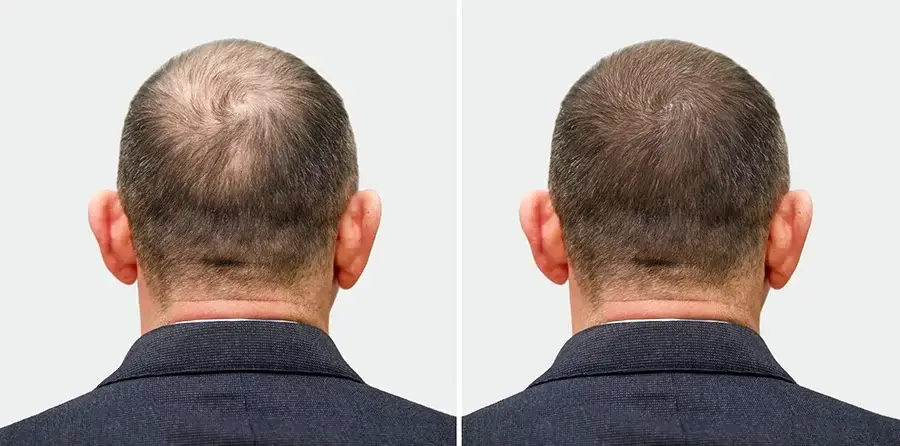
What Is the Procedure After a Hair Transplant?
Hair Transplant Surgery and Post-Process
Hair transplant surgery involves transplanting hair follicles from donor sites to recipient sites. In the post-process phase, proper aftercare is crucial to achieving optimal results.


How Many Days Rest After Hair Transplant?
Doctors usually recommend a few days to a week of rest post-surgery. However, it largely depends on the patient’s recovery rate and the extent of the procedure.
What Should I Do After 10 Days of Hair Transplant?

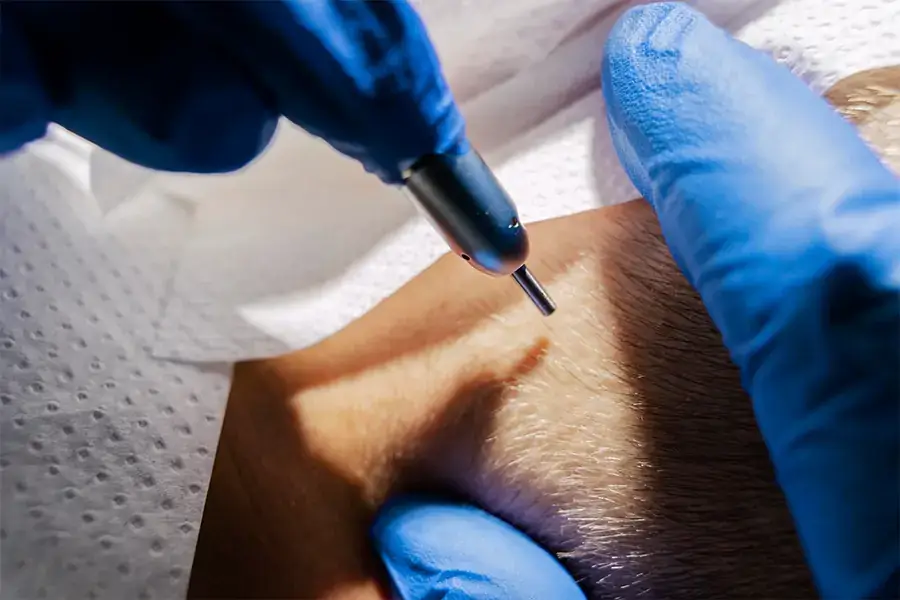
Can You Go Bald Again After a Hair Transplant?
Hair Transplant Before and After Process in Turkey
The recovery process varies for each patient and procedure. Generally, within a few weeks, patients may expect to return to light activities, while full recovery can take several months.
How Can I Hide My Head After a Hair Transplant?
Can I Color My Hair After the Hair Transplant?
How Long Does the Hair Last After a Transplant?
Difference Between Women's and Men Hair Transplants
What is a Female Hair Transplant?
A female hair transplant is a surgical procedure that addresses hair loss in women. It involves relocating hair from areas of the scalp unaffected by hair loss to the areas where thinning or balding has occurred.
Can Women Get Hair Transplants?
Yes, women can get hair transplants. It's an effective solution for those experiencing significant hair thinning or bald spots due to various causes, including hormonal changes or conditions like traction alopecia.
Hair Transplant for Women
Hair transplants for women help restore hair density and coverage, significantly enhancing their appearance and boosting confidence. It's vital, however, for women to have an extensive consultation with the surgeon to understand the possibilities and limitations of the procedure.
Frequently Asked Questions About Hair Transplant
What Are the Risks and Side Effects of Hair Transplant?
While hair transplantation is generally safe, it carries certain risks like infection, scarring, and unnatural-looking hair. Temporary side effects may include pain, swelling, or numbness on the scalp. Contact us for more information about hair transplant Turkey.
Do hair transplants stop balding?
No, hair transplants do not stop the process of balding. They merely move hair follicles from one area to another. However, since the transplanted hair is usually taken from areas resistant to balding, they tend to retain their longevity post-transplant.



